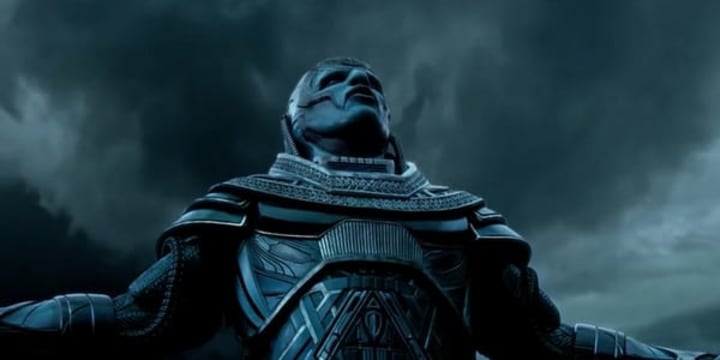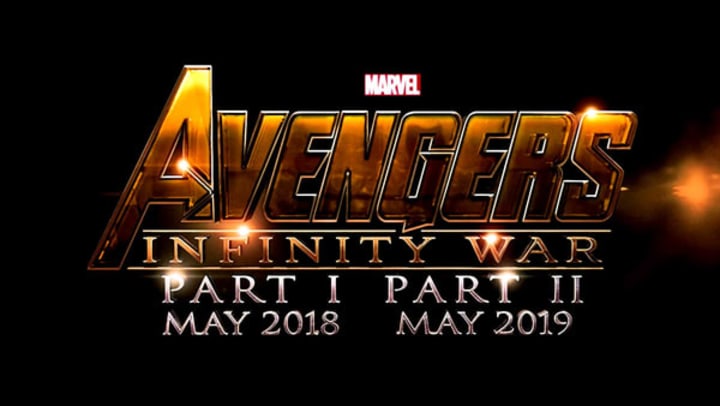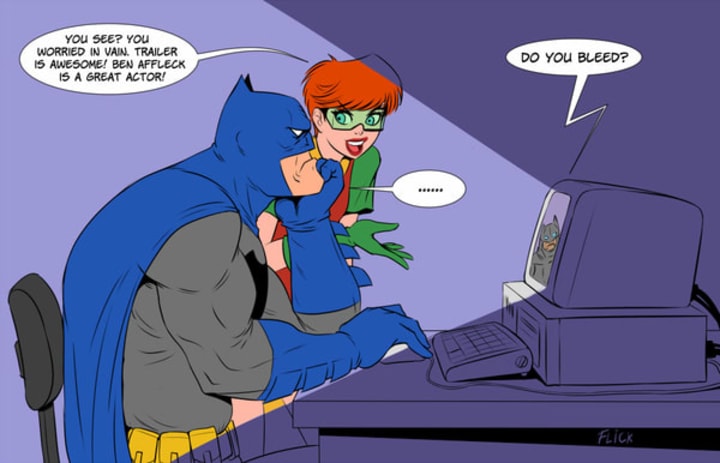
The 21st century has completely changed the way we interact with a film. Social media has transformed the film industry, in ways that I don’t think we fans fully realise – so today, I want to explore how we modern-day cinemagoers interact with the movies we love!
Stage One: Hype

Have you checked out the trailer?
There was a time when it was hard to get information about a movie you’re looking forward to. Maybe you’d see a trailer; or perhaps you’d see a film magazine talking about next year’s releases. Either way, you got a surprise, you learnt a little, and you went to the cinema with only a small amount of prior knowledge. Nowadays, things are completely different.
Studios book the dates years in advance. Sometimes they don’t announce a title; on other occasions, they announce nearly five years’ worth of movies, as Marvel did when they revealed the build-up to Avengers: Infinity War Part II! Either way, speculation begins straightaway, and from that moment on every piece of information is carefully sifted by the fans. When a director is chosen, fans wonder what that means for the direction of the film; remember when experienced horror director Scott Derrickson was chosen for Doctor Strange?

Seriously, they announced films to 2019--?!?
Casting is huge. Even before a film comes to exist, fans have ideas in their minds about who could play the part, and there are tremendous websites out there – like IfList – that allow fans to choose their dream ‘cast’! Giving an idea of the influence fancasting can have, IfList are partnered with the New York Conservatory for Dramatic Arts and the acting and film school Studio 4!
But when official cast are announced, the Internet goes crazy. You only have to cast your memory back to the moment when Ben Affleck was cast as Batman in Batman V Superman: Dawn of Justice to get a sense of how much scrutiny casting is put under.

Are you convinced?
From the moment it's announced, the film is under a social media microscope. Filming locations go public, and if we’re lucky we get shots of the actors and film crew. Smart directors, like Bryan Singer, run a steady drip-drip-drip of information via social media, building the hype. The idea is that everything should be getting the fans ever-more-excited for the film.
Of course, that’s where things can also go badly. One of this year’s biggest flops, Fantastic Four, did badly precisely because Josh Trank’s initial version began to leak online – and social media went crazy. By all accounts, Fox lost confidence in his vision of the movie, and forced a drastic rewrite. You can actually feel the moment in filming when Fox took control, complete with a sudden time-jump to quickly move the story on. Josh Trank wasn’t happy, as he made known in a tweet that he swiftly deleted.
The reality is, nowadays the ‘hype’ completely coexists with the entire filming and production experience. The smartest directors and producers encourage subtle leaks to build the hype, and the smartest writers, directors and producers keep an eye on fan reaction, tweaking their ideas accordingly. Captain Phasma in Star Wars: The Force Awakens was originally male, but was gender-swapped when social media began to react to the low number of female roles in the film (there are rumours a lot of women were also recruited to play female rebels around that time).
Trailers, too, have changed their nature. No longer are they something watched and then mused over in private; now, they’re carefully dissected by fans (let’s face it, I do some of this myself; I really enjoyed doing Trailer Analyses on Captain America: Civil War and X-Men: Apocalypse, for example). Social media can go ablaze with controversy over a trailer – just look at the reaction to Doomsday’s presence in Batman V Superman: Dawn of Justice.

He looks kind of like a Turtles villain to me...
Studios take this very seriously indeed. Analysis by Google and Market Share on PG-13 action films identified that, while only 10% of marketing revenue is spent on digital compared to over 82% on TV, digital is literally three times more effective at driving revenue. Revenue generated from online video ads far exceeded spend. For the sample studied, online video comprised 4% of total U.S. ad spend for the category, but generated 16% of marketing-driven revenue.
The point about this digital and social media hype is that everything should build towards the moment that the film is released, increasing the likelihood that people will go and see the movie. But this phase needs very careful management, or it can seriously damage a film's prospects.
Stage Two: The Moment

Because of the hype factor, our experience of movies has changed. When ‘the Moment’ comes, there will be two groups who experience it; the casual viewer, who has a background knowledge of the hype but hasn’t invested in it, and the ‘engaged’ viewer, who’s got a strong awareness of at least some of the hype.
For the former, you simply need to make a decent film. For the latter, you need to ensure that the hype hasn’t gone too far, and that key plot elements haven’t been spoiled. Best-case scenario, you add subtle nods into it that don’t weaken the film at all for the casual viewer, but that add extra layers of meaning for the ‘engaged’ viewer – easter eggs that add value to the viewing experience.
The Moment is a tricky thing, though, because as soon as fans start to watch the film, they’ll go public with their views; and that’s when things get awkward. You want viewers who go to the cinema two weeks into the film’s run to have the same kind of experience as viewers who watch it in the first weekend showing. Realistically, there’s precious little a studio can do to control this.
Star Wars: The Force Awakens has shown just insane things can get. Facebook was flooded with posts from people warning they’d block their friends if the movie were spoiled; a rumour went round of someone beaten to death over a spoiler (it wasn’t true); but incredibly, over in Montana, one Star Wars fan was jailed for threatening to shoot a friend over a spoiler! An entire school was put on lockdown over the threat.
Stage Three: Deconstruction
There was a time when writers travelled the world, gathering notes and anecdotes, speaking to crew and cast and gradually building up a picture of the way a film had come to be, and (in some cases) how it worked philosophically. Again, the Internet has changed that.
For casual viewers, social media allows them to express excitement, ridicule, enthusiasm, surprise, disappointment, or a hundred more emotions. For ‘engaged’ viewers, the Internet as a whole allows them to dig deep into philosophy, history, and film theory. Want to get into Star Wars? Maybe the complexity of Mike Klimo’s Ring Theory will interest you. Want to discuss Black Widow’s role in Avengers: Age of Ultron? Differing views are only a few mouse-clicks away.

The smartest franchises use each film to set up the next chapter, essentially integrating each movie’s deconstruction into the hype for the next instalment. The Marvel Cinematic Universe is renowned for this approach, but it’s nothing new; Star Wars: The Empire Strikes Back is simply unfinished without Star Wars: Return of the Jedi, just as Star Wars: The Force Awakens is self-consciously designed to kick off another trilogy. (Come on, guys, I’m sure that isn’t a spoiler!)
No longer is deconstruction the province of the expert; nowadays, we’re all ‘armchair experts’, and the ability to critically deconstruct the movies has been conveyed to the masses. MoviePilot plays a part in that, with anyone able to contribute and air their views, while potentially reaching a massive audience!
There are three traditional responses to change. The first is fear; I admit, when I saw the slow-motion car-crash that is Fantastic Four, I wondered if social media should have this kind of power, and if the film industry isn’t headed down a dead end. The second is excitement; when I learned how social media had resulted in increased female participation in Star Wars: The Force Awakens, I was delighted. The third, of course, is simply acceptance; whether you approve of these changes to the film industry or not, change happens. For now, social media has transformed the film industry. But will those changes last, or will still other forces come into play?
Time will tell. It always does.
About the Creator
Tom Bacon
A prolific writer and film fan, Tom has a deep love of the superhero genre.






Comments
There are no comments for this story
Be the first to respond and start the conversation.